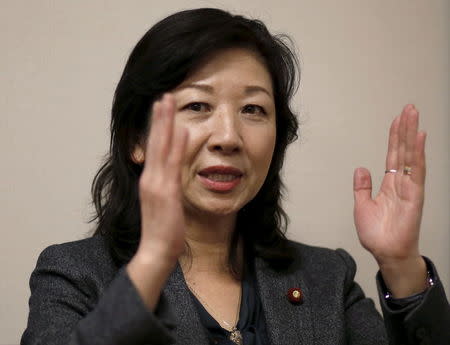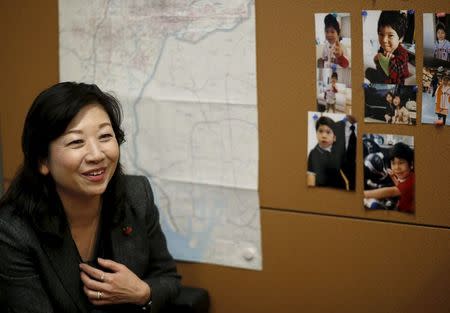Would-be Japan PM says defense shift could be excuse for attack
By Linda Sieg TOKYO (Reuters) - Japanese Prime Minister Shinzo Abe's defense policy shift to allow the military to fight abroad for the first time since 1945 could be used by militants as an excuse to attack Japan, a ruling party lawmaker who hopes one day to succeed Abe said on Monday. Laws enacted in September will allow Japanese forces to aid friendly countries, such as the United States, under attack based on the Abe administration's reinterpretation of the constitution. Such collective self-defense was banned by previous governments as a violation of the post-war charter. Seiko Noda, a former cabinet minister and Liberal Democratic Party (LDP) policy chief, said that for now, Abe's pivot back to focus on the economy had distracted the public from concerns about the security laws, which had sparked huge street protests. But the move might backfire if terrorism struck Japan, she told Reuters in an interview. "By strengthening Japan's partnership with the United States, this creates a convenient excuse for IS (Islamic State)," Noda said. "I pray that this will not happen ... but it is no longer the case that this (terrorist attack) could not happen in Japan," she said, noting recent attacks in France and elsewhere. Often mentioned as a contender to become Japan's first female prime minister, Noda said she was not opposed to allowing Japan to exercise collective self-defense, but that Abe should have formally revised the constitution - a political tough hurdle never yet achieved - not just reinterpreted it. Noda, who tried to challenge Abe's re-election as LDP leader in September, said she would "of course" make another bid when Abe leaves office. His term as party chief ends in 2018. Last time, she failed to get backing of the 20 lawmakers needed to launch a formal challenge, partly, she said, because of pressure from those close to Abe who wanted to "protect him". Noda, who gave birth at age 50 after conceiving via donor eggs and in vitro insemination, said Abe's policies to raise Japan's low birth rate and cope with its fast-ageing population were in the right direction but not bold enough. "There is a gap between the (policy) points and the funding sources," she said. "I'm not saying this just because I am a woman, but the only savior that can change Japan is a major policy change." (Additional reporting by Yoshifumi Takemoto; Editing by Nick Macfie)



